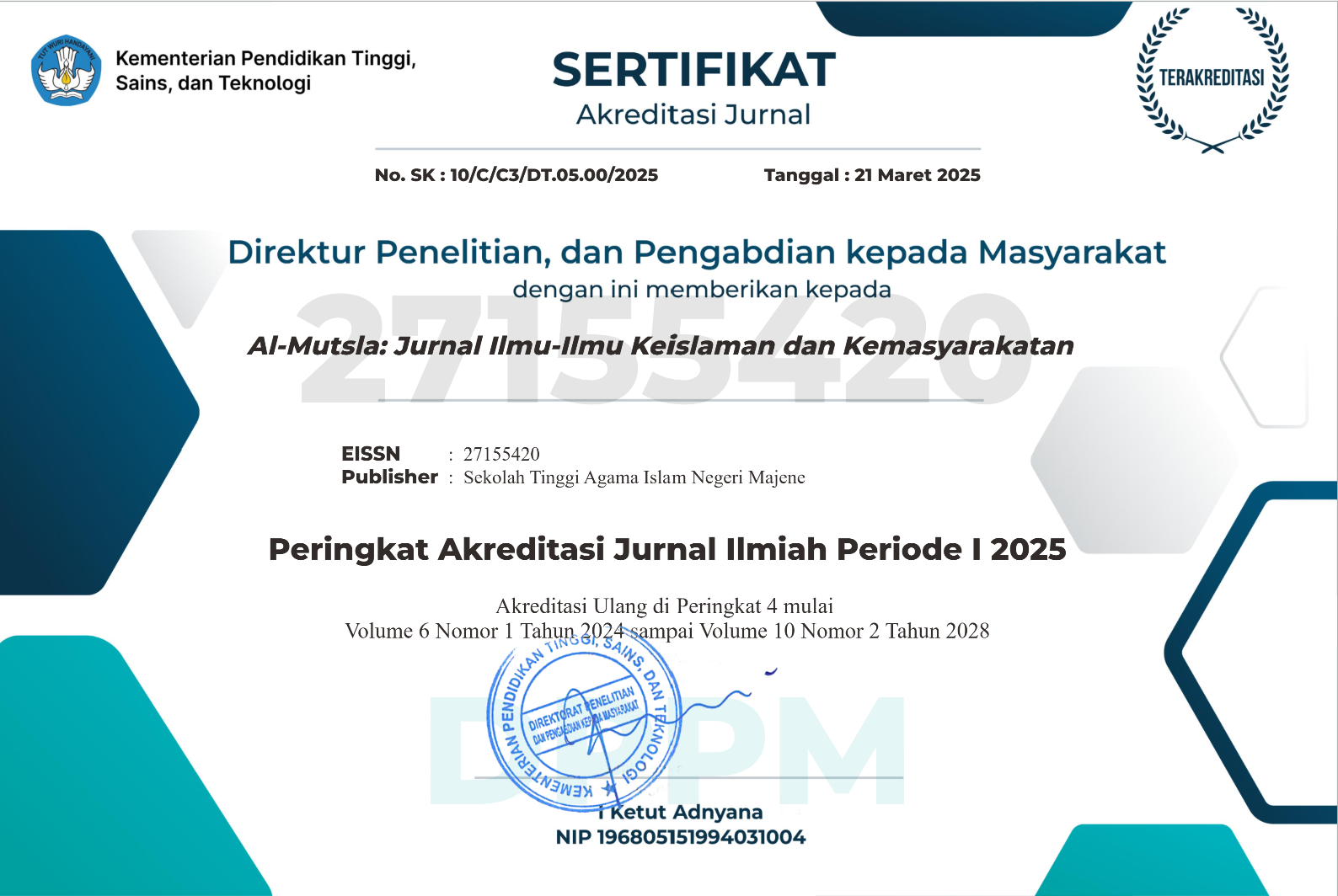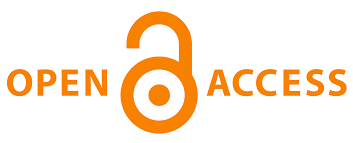The Implementation Of Nahwu Learning Based On Project Based Learning At Uin Imam Bonjol Padang
DOI:
https://doi.org/10.46870/jstain.v5i2.442Keywords:
Arabic Learning, Nahwu, Project Based Learning;Abstract
The educational background of students is an important domain for the success of learning nahwu, so that teachers need improvement in determining the learning to be applied. The PBL strategy requires students to observe and examine practice-based assignments on the object of study being studied, so this study aims to examine the effectiveness of Project based learning (PBL)-based nahwu learning at UIN Imam Bonjol Padang and how to implement PBL in nahwu learning. The research approach used was mixed method research with a quantitative sample of 35 students from two classes while data analysis used SPSS 16 and descriptive analysis based on observation and documentation. This study shows that learning nahwu using the PBL design is effective for students' cognitive understanding by calculating the t-test is greater than the t-table, while the implementation of PBL is based on needs analysis and practice searching for examples of sentences in the Qur'an. This study corroborates that learning nahwu using project based learning is able to increase cognitive understanding based on inductive techniques in tracing verses of the Qur'an. This study recommends further research to analyze nahwu learning strategies that are more varied with various samples and methods.
Downloads
References
Abdurrahman, M. “Penerapan Strategi Cooperative Learning Dalam Meningkatkan Kemampuan Nahwu Mahasiswa.” Jurnal Pendidikan Dan Pembelajaran Universitas Negeri Malang 21, no. 2 (2014): 215–26.
Anthonysamy, Lilian, Ah Choo Koo, and Soon Hin Hew. “Self-Regulated Learning Strategies and Non-Academic Outcomes in Higher Education Blended Learning Environments: A One Decade Review.” Education and Information Technologies, 2020. https://doi.org/10.1007/s10639-020-10134-2.
Chaqoqo, Sri Guno Najib. “Evaluasi Pembelajaran Nahwu Dalam Bentuk Munaqasyah Di PP Al-Luqmaniyyah Yogyakarta.” LISANIA: Journal of Arabic Education and Literature 1, no. 1 (2017): 17. https://doi.org/10.18326/lisania.v1i1.17-36.
Goradia, Tirtha. “Role of Educational Technologies Utilizing the TPACK Framework and 21st Century Pedagogies: Academics’ Perspectives.” IAFOR Journal of Education 6, no. 3 (2018): 43–61. https://doi.org/10.22492/ije.6.3.03.
Gu, Peiya, Ye Zhang, and Haibo Gu. “Creating a Technology-Enhanced Constructivist Learning Environment for Research Ability Development in a BA Thesis Writing Course.” Computer Assisted Language Learning 0, no. 0 (2019): 1–29. https://doi.org/10.1080/09588221.2019.1576735.
Hastang, Hastang. “Upaya Optimalisasi Maharah Kitabah Melalui Model Pembelajaran Berbasis Proyek Pada Materi Al-Jumlah.” Didaktika 12, no. 1 (2019): 62. https://doi.org/10.30863/didaktika.v12i1.176.
Huda, Mokhammad Miftakhul, Pandi Rais, Agus Miftakhus Surur, and Ati’ Rohmawati. “Improvement Of Nahwu And Sharaf Learning Using Amtsilati Method.” Ijaz Arabi Journal of Arabic Learning 3, no. 1 (2020): 121–31. https://doi.org/10.18860/ijazarabi.v3i1.6781.
Ilmiani, Aulia Mustika, and Ahmadi Ahmadi. “The Existence of Arabic Learning in Universities amid the COVID-19 Outbreak: Opportunities and Challenges.” Al-Lisan 6, no. 2 (2021): 179–96. https://doi.org/10.30603/al.v7i2.2172.
Martin, Florence, Albert Ritzhaupt, Swapna Kumar, and Kiran Budhrani. “Award-Winning Faculty Online Teaching Practices: Course Design, Assessment and Evaluation, and Facilitation.” Internet and Higher Education 42, no. March (2019): 34–43. https://doi.org/10.1016/j.iheduc.2019.04.001.
Milles, Matthew B, and A Michael Huberman. Analisis Data Kualitatif. Jakarta: Universitas Indonesia, 1992.
Mohamadi, Zohre. “Comparative Effect of Online Summative and Formative Assessment on EFL Student Writing Ability.” Studies in Educational Evaluation 59, no. July 2017 (2018): 29–40. https://doi.org/10.1016/j.stueduc.2018.02.003.
Nira, R D, and Y Fauziyah. “Development of Arabic Curriculum in Improving Pedagogic Competence of Lecturer Ma’had Umar Bin Al-Khattab.” Nazhruna: Jurnal Pendidikan Islam 4, no. 2 (2021): 294–309. https://e-journal.ikhac.ac.id/index.php/NAZHRUNA/article/view/1480.
Rahmat, Agus Salam, and Maman Abdurrahman. “Analysis of Nahwu Learning Progress in Indonesian Universities Based on the Character of Value Concerns.” TAWARIKH International Journal for Historical Studies 8, no. April (2017): 189–202. www.mindamas-journals.com/index.php/tawarikh 189.
Rutkauskiene, Danguole, Daina Gudoniene, and Rytis Maskeliunas. “Smart Education and E-Learning 2016.” Smart Innovation, Systems and Technologies 59 (2016): 291–301. https://doi.org/10.1007/978-3-319-39690-3.
Saptenno, Audrey Evelyn, Hasan Tuaputty, Dominggus Rumahlatu, and Pamella Mercy Papilaya. “The Improvement of Learning Motivation and Creative Thinking Skills of Senior High School Students through Modified Problem Based Learning Model.” Journal for the Education of Gifted Young Scientists 7, no. 4 (2019): 1175–94. https://doi.org/10.17478/jegys.597519.
Saputra, Maskhur Dwi, Soetarno Joyoatmojo, Dewi Kusuma Wardani, and Khresna Bayu Sangka. “Developing Critical-Thinking Skills through the Collaboration of Jigsaw Model with Problem-Based Learning Model.” International Journal of Instruction 12, no. 1 (2019): 1077–94. https://doi.org/10.29333/iji.2019.12169a.
Sari, Rizka Wulan, Bachtiar Syamsuddin, and Universitas Negeri Makassar. “Situation Method Dalam Pembelajaran Bahasa Arab Di Era Revolusi Industri 4.0.” Al-Fashahah 1, no. 1 (2021): 22–31.
Solihin, Ihin. “Strategi Pembelajaran Nahwu Di Pesantren Ciloa Garut Dan Al-Ihsan Bandung.” Al-Tsaqafa 14, no. 2 (2017): 372.
Sunarti, Lia, Ernawati Ernawati, and Marja’i Affan. “Aplikasi Kamus ViKA Sebagai Visualitator Kosakata Bahasa Arab Untuk Pembelajar Pemula.” LISANIA: Journal of Arabic Education and Literature 1, no. 1 (2017): 37. https://doi.org/10.18326/lisania.v1i1.37-55.
Yahya, Fata Asyrofi. “The Transformational Paradigm of The Pesantren Curriculum Innovation.” Cendekia: Jurnal Kependidikan Dan Kemasyarakatan 1, no. 1 (2021): 109–25. https://doi.org/10.21154/cendekia.v1i1.2975.
Downloads
Published
How to Cite
Issue
Section
License
Copyright (c) 2023 AL-MUTSLA

This work is licensed under a Creative Commons Attribution-NonCommercial 4.0 International License.










